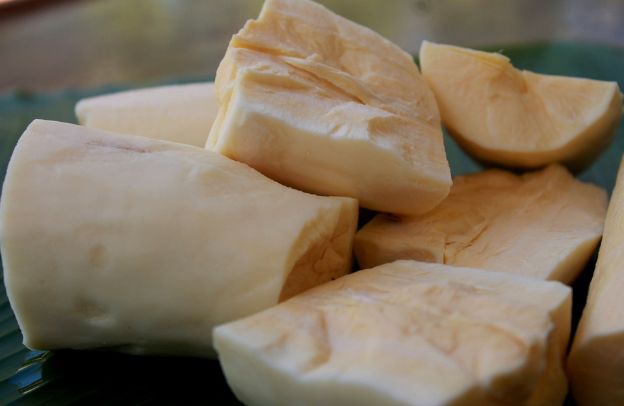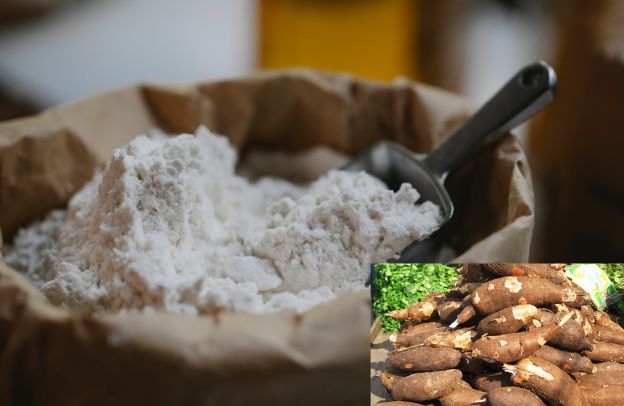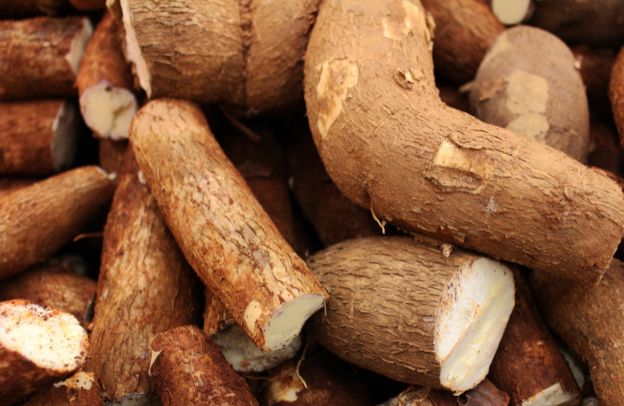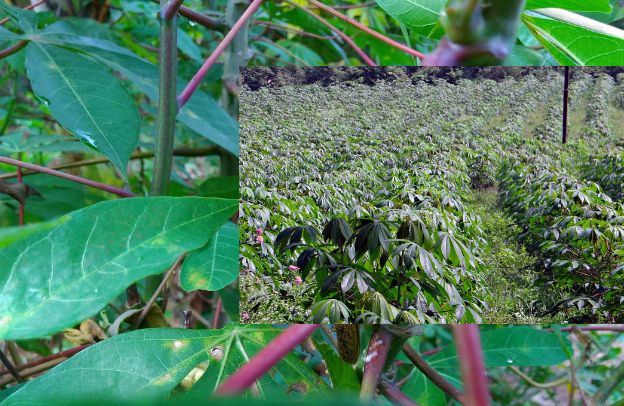Nigeria’s Agricultural Renaissance: A Call to the African Diaspora

Have you ever considered the untapped opportunities within Nigeria’s fertile soil? Despite being the world’s largest cassava producer, Nigeria still imports processed cassava products, missing out on substantial economic gains. In 2021 alone, the country produced approximately 63 million metric tons of cassava—leading global production, but much of it remains underutilized.
Take your Business Storytelling to the next level through our Story To Asset Transformation Framework.
As a member of the African diaspora, you have a unique opportunity to drive transformation in Nigeria’s agribusiness sector. By investing in modernized farming, agro-processing, and sustainable agriculture, you can create jobs, enhance food security, and build profitable ventures while strengthening Nigeria’s economic foundation.
Nigeria’s Agricultural Landscape
Nigeria’s agricultural sector is diverse, with staple crops like cassava, yams, maize, rice, and sorghum feeding millions. Cash crops such as cocoa, oil palm, and rubber contribute significantly to exports and economic activity.
However, challenges such as low productivity, poor infrastructure, limited market access, and climate change hinder the sector’s full potential. Addressing these gaps is critical to ensuring long-term food security and sustainable growth.
See also: The Economic Benefits Of Cassava Cultivation In Nigeria
The African Diaspora: A Catalyst for Change
The African diaspora is a formidable economic force, contributing over $90 billion to Nigeria’s economy through remittances and investments over the past five years. Yet, much of this capital goes into real estate and consumer spending, while critical sectors like agribusiness remain underfunded.
Nigeria’s agricultural sector has long suffered from underinvestment and outdated techniques. Despite its dominance in cassava production, the country still imports millions of dollars worth of processed cassava products such as starch, ethanol, and high-quality flour. The same applies to rice, maize, and palm oil—crops Nigeria grows abundantly but imports in refined forms.
This paradox presents a massive opportunity for diaspora investors to bridge supply gaps and create wealth in agribusiness. Here’s how:
Job Creation
According to Statista, Nigeria’s agricultural sector accounted for approximately 37.99% of total employment in 2022, maintaining a stable share from 2021. However, this figure represents the lowest recorded within the observation period, highlighting a gradual decline in agricultural employment.
Agricultural jobs encompass farming, hunting, forestry, and fishing, contributing to the production of goods and services for profit or wages. However, much of this employment remains informal and poorly paid.
By investing in mechanization, food processing, and supply chain development, you can help transform the sector, creating millions of sustainable jobs while boosting productivity and economic growth.
See also: Cassava and Sustainable Agriculture Practices In Nigeria
Strengthening Food Security
With Nigeria’s population projected to reach 400 million by 2050 (UNFPA), the country must boost food production. Diaspora-led agribusiness initiatives can reduce dependency on imports and enhance food availability.
Technology Transfer
Many diaspora investors have access to advanced farming technologies, irrigation systems, and post-harvest processing techniques that can revolutionize Nigeria’s agricultural landscape.
One of the most transformative innovations in this space is e-commerce, which is rapidly changing industries worldwide. In Nigeria, digital platforms are emerging as a game-changer for farmers, helping to reduce post-harvest losses, improve market access, and enhance supply chain efficiency.
A publication titled “Tool for Reducing Post-Harvest Losses in Nigerian Agriculture: The E-commerce,” authored by Kolawole Owoigbe from Lagos State Polytechnic and Kehinde Onayemi Adesoga, highlights the significant impact of e-commerce platforms on Nigerian farmers.
According to the study, the adoption of these platforms has resulted in notable benefits, including a 30% reduction in post-harvest losses and increased income levels.
This is attributed to improved price negotiation and expanded market access, enabling farmers to reach a wider customer base and maximize profits. The full publication is available on ResearchGate.
A study combining quantitative surveys of over 500 farmers with qualitative interviews from agricultural experts, e-commerce providers, and policymakers found that farmers leveraging e-commerce experienced faster inventory turnover, reduced waste, and increased profitability.
However, several barriers still hinder widespread adoption, particularly in rural areas, where challenges include:
- Limited Internet Access – Many farming communities lack reliable digital connectivity.
- Low Digital Literacy – Farmers need training on how to leverage e-commerce platforms effectively.
- Logistical Constraints – Inefficiencies in transportation, storage, and supply chain management reduce the benefits of digital trade.
Unlocking the Potential: Strategic Investments Needed
To maximize the impact of e-commerce on Nigeria’s agriculture sector, targeted investments should focus on:
- Expanding Rural Internet Infrastructure – Ensuring connectivity for farmers in remote areas.
- Enhancing Digital Literacy – Training farmers on e-commerce tools, online payments, and digital marketing.
- Strengthening Logistics & Supply Chains – Improving transport networks, storage facilities, and last-mile delivery systems.
By addressing these challenges, e-commerce can serve as a catalyst for Nigeria’s agribusiness transformation, fostering economic growth, sustainability, and food security.
With the right investments and partnerships, diaspora investors can play a key role in empowering farmers, creating jobs, and making Nigerian agriculture more competitive on a global scale.
Expanding Agricultural Exports
Nigeria has the potential to become a global agricultural powerhouse. Countries like Thailand, Vietnam, and Brazil have transformed their economies through agribusiness. With strategic investments, Nigeria can achieve similar success.
Key Investment Opportunities in Nigeria’s Agribusiness Sector
Nigeria leads the world in cassava production, yet less than 10% of its yield is processed into high-value products. Cassava derivatives such as starch, ethanol, and flour are in high demand for food production, pharmaceuticals, and biofuels. Investing in processing plants can reduce Nigeria’s import dependency and create thousands of jobs.
Urban Farming: The Future of Food Production
With over 50% of Nigerians now living in cities (World Bank), urban farming offers a viable solution to food shortages. Technologies like hydroponics, aquaponics, and vertical farming can provide fresh produce year-round in urban centers like Lagos, Abuja, and Port Harcourt.
Investing in climate-controlled greenhouses, rooftop gardens, and community farming projects can help meet Nigeria’s rising food demands while minimizing reliance on imports.
Agricultural Financing: Bridging the Credit Gap
Smallholder farmers often struggle to access affordable loans. Diaspora investors can introduce impact-driven financing models such as agricultural microloans, crowdfunding platforms, and cooperative funding to support small-scale agribusinesses.
Climate-Smart Agriculture: Combating Environmental Challenges
Nigeria faces severe climate risks, including desertification, floods, and erratic rainfall. Investing in drought-resistant crops, irrigation systems, and regenerative farming techniques can enhance resilience and productivity.
How to Get Involved
If you are part of the African diaspora and want to invest in Nigeria’s agribusiness sector, here are some practical steps:
- Partner with Local Agripreneurs – Collaborate with established farmers and agribusinesses that align with your investment goals.
- Leverage Government Incentives – Take advantage of tax breaks, grants, and low-interest agricultural loans offered by the Nigerian government.
- Join Agricultural Cooperatives – Pooling resources with other diaspora investors can help reduce risks and maximize impact.
Organizations such as the Nigerian Agribusiness Group (NABG) and the Tony Elumelu Foundation provide platforms for diaspora-led investments in agriculture.
Conclusion: A Call to Action
Nigeria stands at a critical juncture, where agribusiness can drive economic transformation, create jobs, and ensure food security. The African diaspora holds the key to unlocking this potential.
By channeling investments into agriculture, adopting modern technologies, and building strategic partnerships, you can play a vital role in reshaping Nigeria’s food system. The question is: Are you ready to seize this opportunity and make a lasting impact?
Take your Business Storytelling to the next level through our Story To Asset Transformation Framework.





